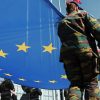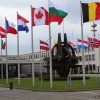
A great deal of noise, and some deeds, underlie the alleged Russian meddling in favour of Donald Trump in the recent US presidential election. The President-elect, unlike the intelligence services and the outgoing President, no longer affirms that there is no proof at all of such an incursion, but rather that it had no bearing on the outcome of the vote. The case will influence other ballots and may undermine confidence in democracy in the countries where they are held.
Outside interference in domestic elections is nothing new. Indeed, it has something of a track record. Here are some examples. By not freeing the US Embassy hostages in Teheran in 1980, Ayatollah Khomeini sealed the fate of Jimmy Carter in his defeat to Ronald Reagan. They were freed while the new President was delivering his inaugural address on 20 January 1981. Opting for terrorism, Jihadists used the Madrid attacks of 11 March 2004 to intervene in the election held three days later, although the outcome was also shaped by the way the Aznar government managed the information that emerged. And one can go further back, to the first elections of Spain’s fledgling democracy, where German Social-democrats and Christian-democrats gave their backing to their Spanish counterparts. From 1948 the CIA attempted to influence elections in Italy to ensure the communists were unable to take over. Another case in point is the pressure exerted by the US, Russia and other countries on the elections in Ukraine. What is new is the method: the use of cyber spying and the spreading of information, whether culled or fabricated. In this regard, however, the US National Security Agency has not hesitated to spy on whomsoever it can, as the Snowden revelations laid bare. This is all very well for the countries that have the ability to do it: if something can be spied upon and manipulated, it will be spied upon and manipulated. As a corollary, countries must be capable of defending themselves.
Last August, when e-mails from the Democratic Party headquarters started to leak out, the CIA was already attributing the source of the hacking –and the disinformation distributed through Twitter and other social media– to Russia, something that in principle is not at all easy to determine. Trump, then merely a candidate, cast doubts on the claims, and as President-elect has maintained his criticism of the intelligence services; in this he has had the backing of Julian Assange, from his refuge in the Ecuadorean embassy in London. In a Fox News interview, the founder of Wikileaks, which released the files, claimed that a teenager could have hacked the Democrats. A declassified report from the intelligence services, summarising the contents of a classified version that has no doubt reached Trump, is titled ‘Assessing Russian Activities and Intentions in Recent US Elections’: The Analytic Process and Cyber Incident Attribution. Released last Friday by the Office of the Director of National Intelligence, it asserts that Putin ‘ordered’ a campaign to influence the elections and lists the types of activity, ranging from hacking to the spreading of propaganda and false information: a complex operation.
In the wake of Obama’s reprisals (the order to expel 35 alleged Russian agents from the US and measures against the main Russian intelligence services, the FSB and the GRU, constitute a classic gesture, whereas cyber reprisals could have been a more dangerous escalation and might have exposed covert US capabilities) Trump has promised, once he is installed in the Oval Office, to assemble a team to combat such practices. But his main insistence has been that the alleged campaign did not have a bearing on the election results that ensured his victory over Hillary Clinton in the Electoral College, although not in the popular vote, having previously spoken of a ‘witch hunt’.
President Obama said in a statement at the end of December that ‘all Americans should be alarmed by Russia’s actions’, continuing that ‘in addition to holding Russia accountable for what it has done, the United States and its friends and allies around the world must work together to oppose Russia’s efforts to undermine established international norms of behaviour, and interfere with democratic governance’. Putin opted not to respond with an escalation and is awaiting Trump’s arrival in the White House on 20 January. But senior intelligence officials have asserted that communications have been intercepted (confirming that such practices go on) from members of the Putin government celebrating Trump’s win as ‘a geopolitical gain for Moscow’.
A former head of the CIA called it, somewhat hyperbolically, ‘the political equivalent of 9/11’; for others it is the first cyber war, although this is not so. Indeed, in 2008 and 2012 the campaigns run by McCain, Romney and Obama were the targets of hackers. Clearly the US is not the only country that controls this field, although it has a major head start. China is highly active in cyber spying, but leaves more traces. Even a middle-ranking power like the UK is involved, with its GCHQ (Government Communications Headquarters), devoted to signals intelligence (SIGINT) activities, dating back well beyond recent developments.
Now there is some alarm that, by one means or another, for one purpose or another, there could be foreign interference in the major elections to be held in 2017 in the Netherlands, France and Germany. The security services of the latter claim to have detected Russian involvement in an increase of cyber espionage. The Bundestag, the lower German legislative chamber, suffered one such attack in 2016. Chancellor Angela Merkel, who has good prospects of being re-elected, has warned that there are signs of online attacks and disinformation campaigns originating from Russia and that they may ‘play a role in the election campaign’ this autumn. But for Merkel –who was spied upon by the NSA, something that caused a major crisis between Berlin and Washington– this is part of Russia’s so-called ‘hybrid war’, and now forms part of ‘normal life’ –the ‘new normal’ as the American report calls it –and as such will have to be managed–. The same applies, with greater emphasis, in Spain.
There is concern in the EU, not so much about the pro-Russian stance of François Fillon for the Republicans and Marine Le Pen for the National Front, but about Europe’s general vulnerability to Russia, given the existing economic and social connections. In general, there may be a certain vulnerability to these types of attacks and disinformation campaigns in liberal democracies. But in the US, the leaks about the Democrat campaign to Wikileaks may have had less electoral impact than the statements made by the head of the FBI two weeks before the vote regarding the improper use of e-mails when Clinton was Secretary of State. John Podesta, who led the Clinton campaign and was the former cabinet chief under her husband when he was President, and was also one of the hackers’ targets, has written that ‘something is deeply broken at the FBI’, alleging that the Bureau did too little to alert the Democratic Party and the Clinton campaign. And it should not be forgotten that the news media, of all stripes and slants, have collaborated in spreading such content.
As Jakob Bund of the European Union Institute for Security Studies argues, there are four ways of influencing elections using cybernetic means: (1) changing the vote; (2) manipulating opinions that inform the vote (something that, it is worth pointing out, new neuroscientific techniques focus upon); (3) interfering with the act of voting; and (4) undermining confidence in the integrity of the vote. In other words, chipping away at confidence in elections and the democratic rules of the game. That said, other rules, or the absence of them, now hold sway in cyberspace, and they have started to have a profound effect on democracy and geopolitics.


